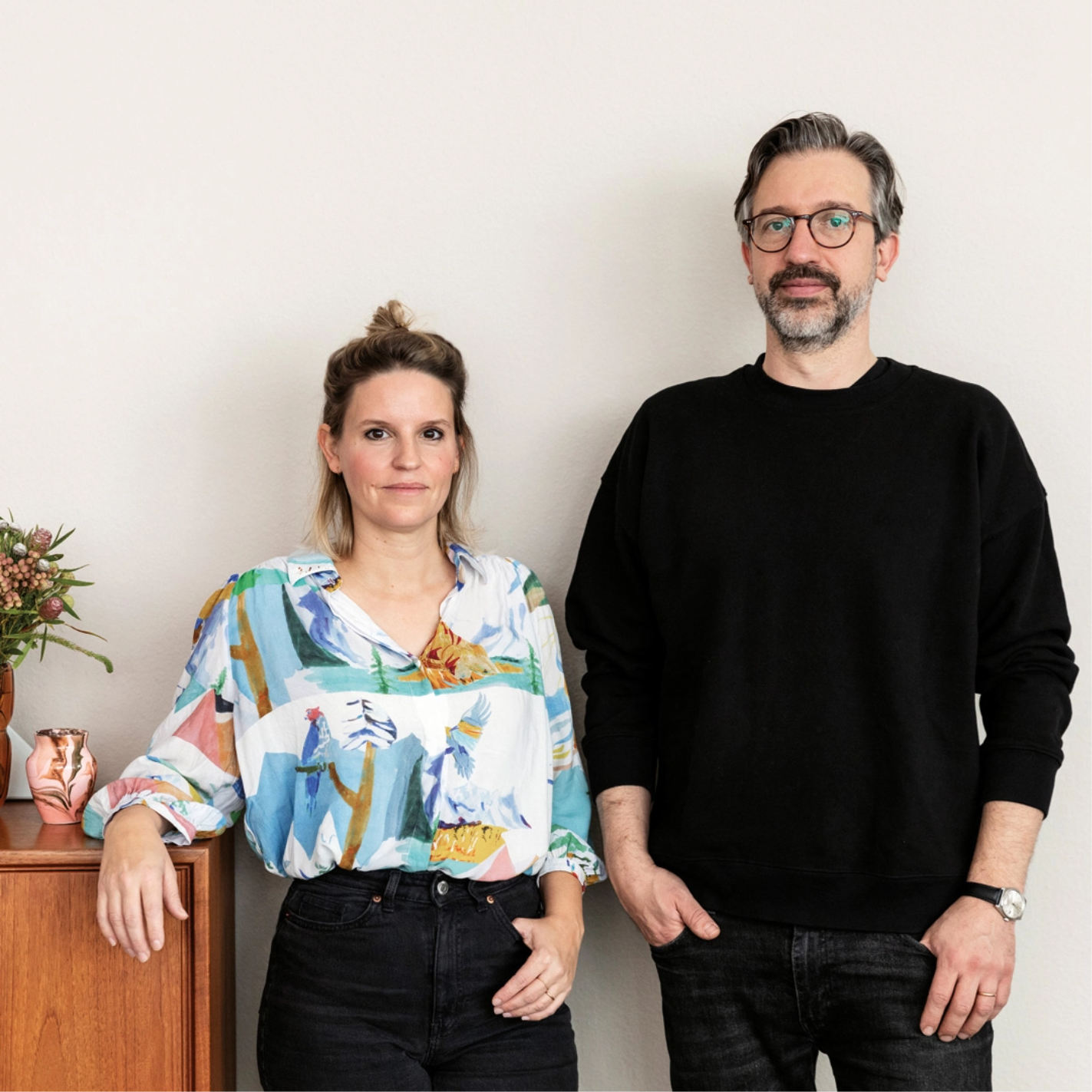Who is behind Lili Pepper?

What started with small handmade pieces has become a family business. Welcome to Lili Pepper.
We, Damian and Franziska Carnevale, have been designing sustainable home textiles and accessories since 2010. All prints are hand-drawn by Franziska and then printed on organic cotton.
We met almost 20 years ago while working at a well-known Swiss company that specializes in organic cotton and sustainable production.
Friendship turned into love and when Damian moved to India in 2010 to start his own business, I followed him two years later.
We felt very comfortable in India. The climate, the warmth of the people, the lively everyday life and, above all, the proximity to our producers and the textile industry were the reasons why we stayed in India. We soon opened our showroom in Bangalore, developed collections for home textile customers and were able to count on a permanent team of employees who have been with us to this day. In the almost 10 years in India, we strengthened our business relationships with our partners, trained our employees and defined the values according to which we produce without compromise.
Design, quality and sustainability are our top priorities.
Our three boys were born during our time in India.
In 2018 we moved back to Switzerland, to Baden. Damian continues to travel regularly to our office in Bangalore in India and visits the production sites together with our employees. He selects new fabrics, looks for new craft techniques and brings a lot of inspiring material back to Switzerland.
We want to have a positive impact with our actions and sustainably improve the standard of living of as many people as possible in our production chains. We work with various NGOs that give women meaningful work and enable them to earn an income so that they can become financially independent.
Franziska: "I consider it a great gift that I was able to live in India for almost 10 years and experience the culture and people, as well as the textile industry, up close."




